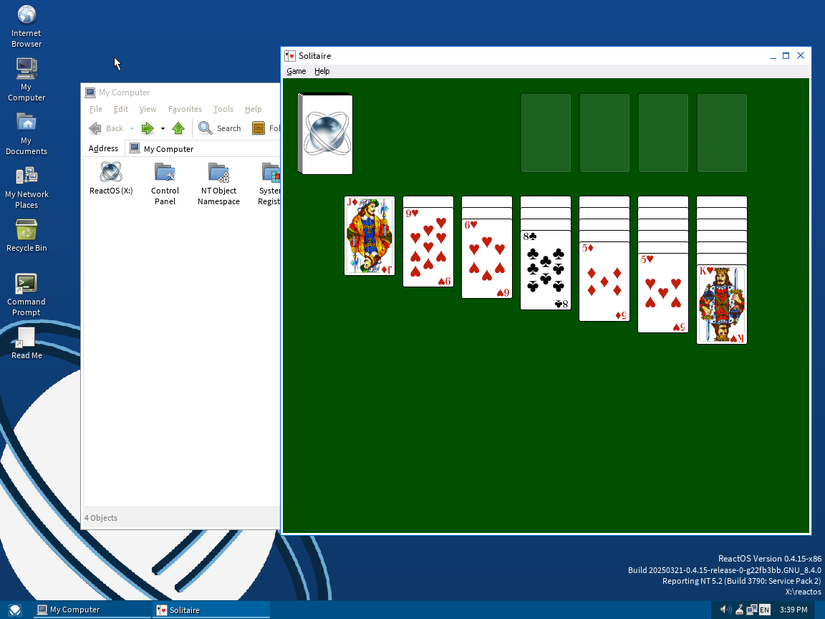When it comes to Microsoft Windows, there are many versions that are iconic for different reasons. Windows 3.1 liberated the mainstream from the DOS command line, and when I first tried Windows 95 it felt like the future had arrived, but Windows XP is special for a different reason.
Goofy aesthetics aside, Windows XP remembered as a fast, stable and convenient OS. People hung on to their Windows XP installations for as long as they could, and even today there are some niche embedded systems that still rely on Windows XP, and up until Windows 7, Windows had a special Windows XP mode. Under the hood, Windows XP was different in that it moved away from MS-DOS and the Windows 9x kernel and brought the business-class Windows NT kernel into a consumer OS.
So it's fair to wonder why Microsoft hasn't taken the step to open source Windows XP. The company doesn't support it, doesn't make any money from it, and releasing the source code will not only preserve it for historical reasons, but will also usher in a new wave of home software development. There is a precedent here too. After all, the company released MS-DOS 4.0 as open source giving us a rare glimpse into the inner workings of the software that has dominated home computing for so long. So why didn't the same happen with Windows XP or any other Windows operating system?
Microsoft still owns the code
This is a very basic observation, but I must emphasize that Microsoft owns the source code for Windows XP and is not obligated to release it. Even if, from our point of view, it no longer provides any real value to the company.
But it's also much more complicated. Compared to something like MS-DOS 4.0, Windows XP is a complex beast. It's not just Microsoft's own source code, but also a complex network of proprietary and licensed components. This potentially means that even if Microsoft wanted to open source XP, they would also need the consent of some other organizations. Some of the organizations involved may not even exist anymore, making it legally impossible to simply publish the code in its entirety based on the original agreements.
Security and legal issues
Also, as I mentioned above, there are still systems that depend on Windows XP when they really shouldn't. Thus, opening Windows XP may lead to the discovery of new vulnerabilities that may still be relevant. In addition, Windows XP is the basis of all modern versions of Windows, being a branch of the Windows NT family tree. This means that some core components may still be present and cause security issues.
However, in 2020, part of the Windows XP source code leaked online (according to ZDNet), and this did not lead to a security crisis. However, it was not a complete copy and did not have all the components, so there are still some advantages from a security perspective.
Technical obstacles of outdated software
If we assume that Microsoft really wants to open source Windows XP and brush aside any legal issues, is it possible? Given that it's two decades old, and many of the development tools and dependencies are no longer in the same shape they were in when XP was new, XP is probably too old and complex for an open source project to be feasible, or not worth the time and expense.
Non-open source saving
Personally, I don't think Microsoft will open source Windows XP in my lifetime, if ever. It's more likely to get this treatment instead than Windows 1.0, 3.1, or 95.
However, we have projects like open source project. ReactOSwhich still has a long way to go, but will likely keep Windows XP applications running for good measure. You can also run Windows XP securely using a virtual machine. So the hardest part about using Windows XP and the software designed for it is simply finding a licensed copy.
Ghost in the Machine
Looking at what modern Windows has becomeit feels like Windows XP was the last version of Windows to have all of this before the demise. It was an operating system that could connect you to the network, but did not depend on being online. It had few if any annoyances, didn't record your every move and share them with home base, didn't display ads, and wasn't riddled with Microsoft's bloated “value-added” software like OneDrive, Microsoft 365, or “useful” AI features. Clippy even got fired for Office XPin response to (gasp!) negative user reviews of the much-maligned office assistant.
So the legend of XP, even through rose-colored glasses, I think still haunts modern Windows.

- operating system
-
macOS Sequoia
- CPU
-
M4 Pro 12-core
- GPU
-
16-core M4 GPU
- RAM
-
24 GB











